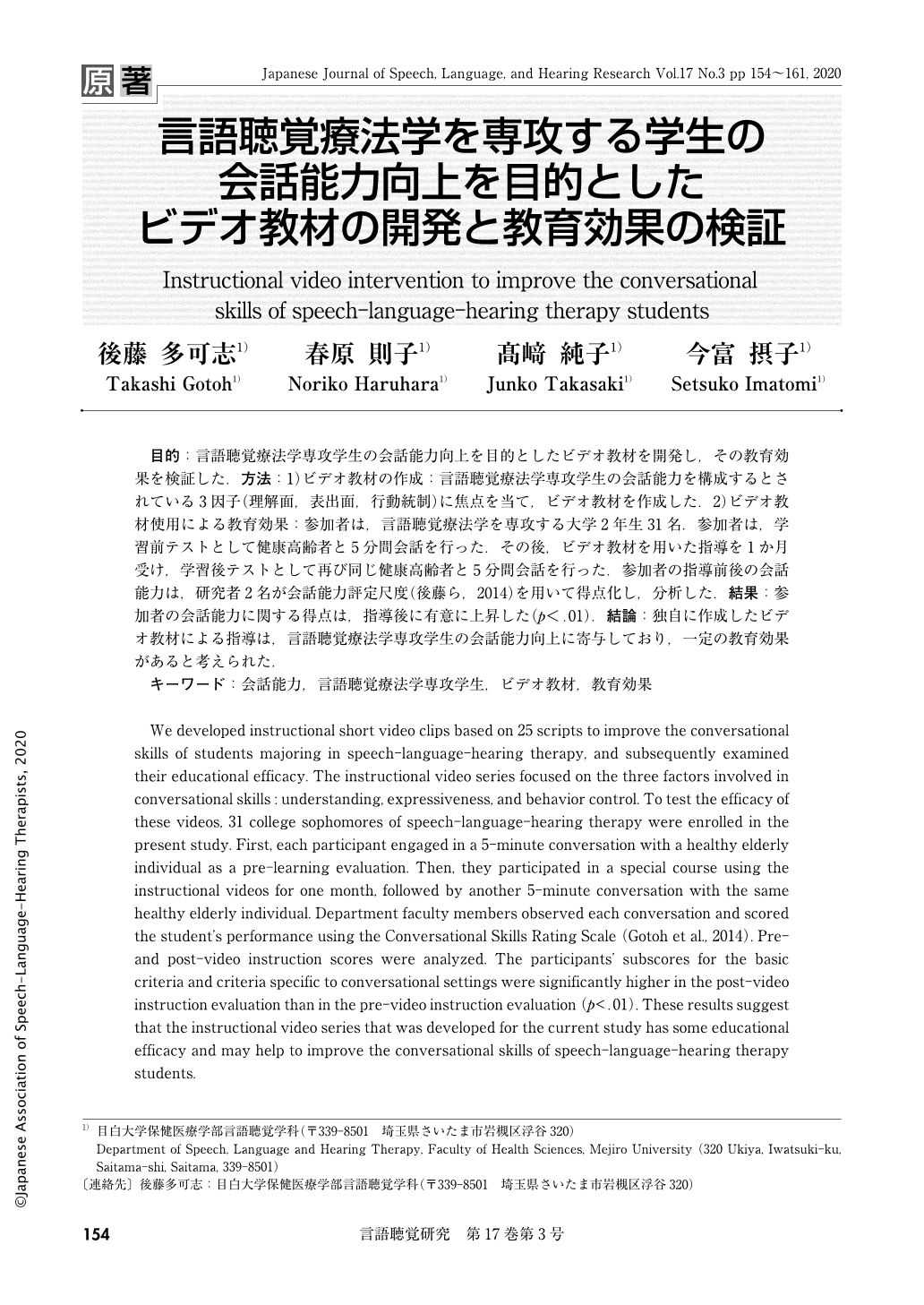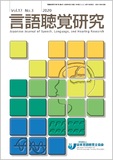Japanese
English
- 有料閲覧
- Abstract 文献概要
- 1ページ目 Look Inside
- 参考文献 Reference
目的:言語聴覚療法学専攻学生の会話能力向上を目的としたビデオ教材を開発し,その教育効果を検証した.方法:1)ビデオ教材の作成:言語聴覚療法学専攻学生の会話能力を構成するとされている3因子(理解面,表出面,行動統制)に焦点を当て,ビデオ教材を作成した.2)ビデオ教材使用による教育効果:参加者は,言語聴覚療法学を専攻する大学2年生31名.参加者は,学習前テストとして健康高齢者と5分間会話を行った.その後,ビデオ教材を用いた指導を1か月受け,学習後テストとして再び同じ健康高齢者と5分間会話を行った.参加者の指導前後の会話能力は,研究者2名が会話能力評定尺度(後藤ら,2014)を用いて得点化し,分析した.結果:参加者の会話能力に関する得点は,指導後に有意に上昇した(p<.01).結論:独自に作成したビデオ教材による指導は,言語聴覚療法学専攻学生の会話能力向上に寄与しており,一定の教育効果があると考えられた.
We developed instructional short video clips based on 25 scripts to improve the conversational skills of students majoring in speech-language-hearing therapy, and subsequently examined their educational efficacy. The instructional video series focused on the three factors involved in conversational skills:understanding, expressiveness, and behavior control. To test the efficacy of these videos, 31 college sophomores of speech-language-hearing therapy were enrolled in the present study. First, each participant engaged in a 5-minute conversation with a healthy elderly individual as a pre-learning evaluation. Then, they participated in a special course using the instructional videos for one month, followed by another 5-minute conversation with the same healthy elderly individual. Department faculty members observed each conversation and scored the student's performance using the Conversational Skills Rating Scale (Gotoh et al., 2014). Pre- and post-video instruction scores were analyzed. The participants' subscores for the basic criteria and criteria specific to conversational settings were significantly higher in the post-video instruction evaluation than in the pre-video instruction evaluation (p<.01). These results suggest that the instructional video series that was developed for the current study has some educational efficacy and may help to improve the conversational skills of speech-language-hearing therapy students.

Copyright © 2020, Japanese Association of Speech-Language-Hearing Therapists. All rights reserved.


